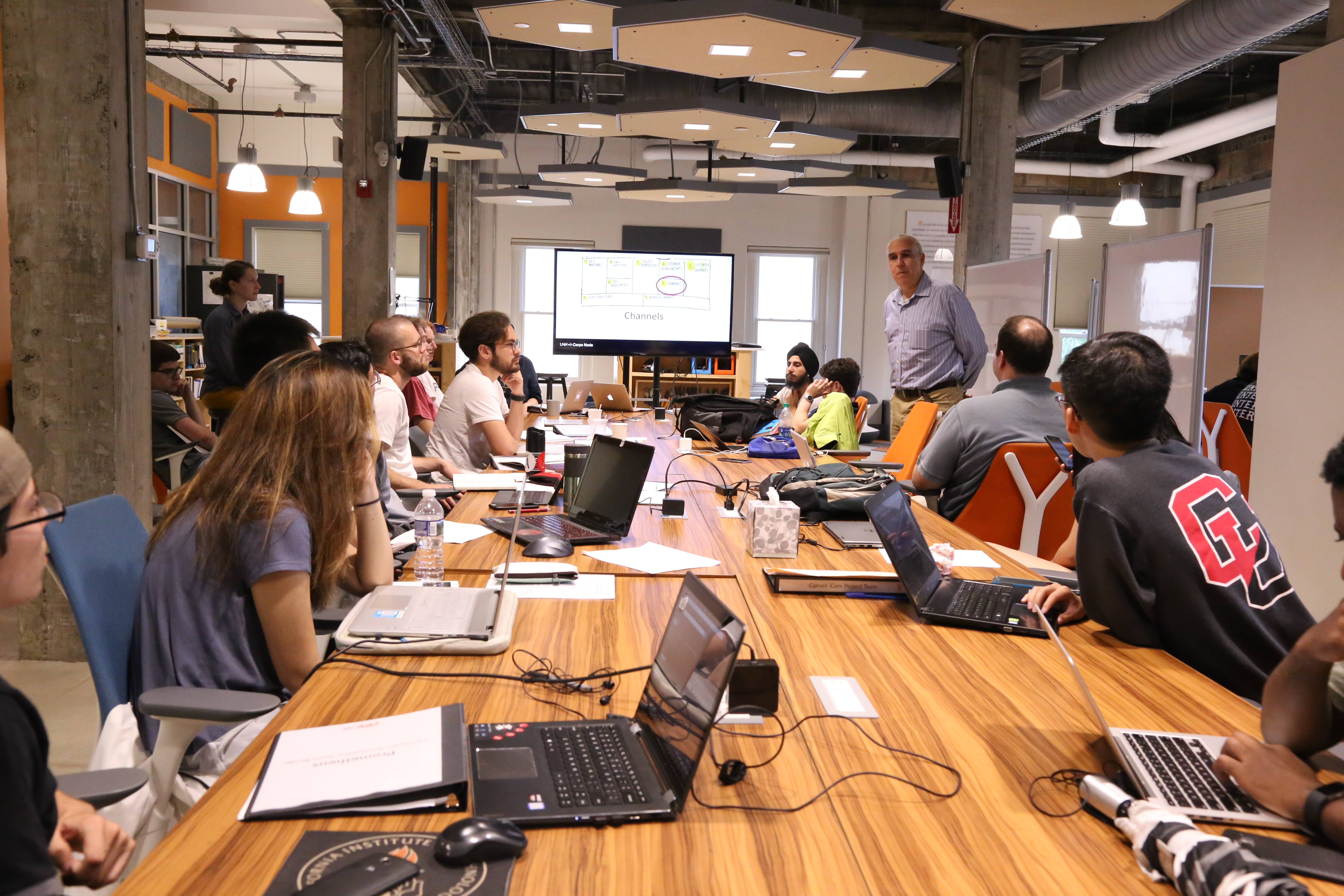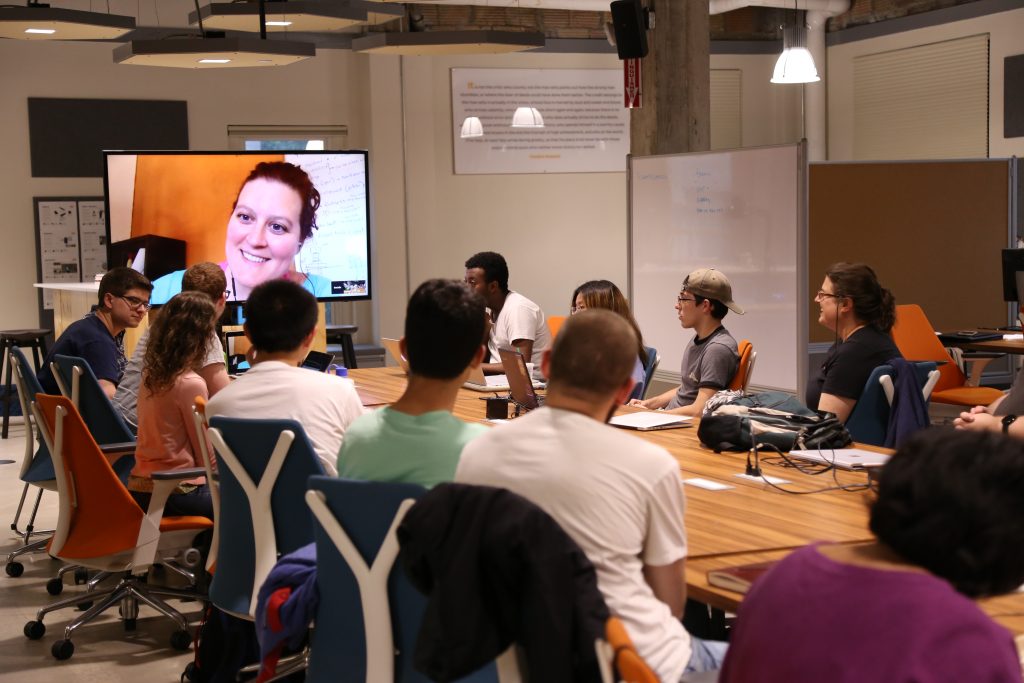
2017 Rev Hardware Accelerator Teams
Ah, summer in Ithaca. Warmer weather, trips to the gorges, concerts on the Ithaca Commons, and — of course — the Hardware Accelerator at Rev. It may not be on your list of Best Summer Events, but for us it wouldn’t be summer without the sweet smell of the 3D printer! For 11 weeks, eight teams work at Rev to engage in a comprehensive product design and development process. They work with mentors and tech instructors to refine their ideas to be commercially desirable, technologically viable, and economically feasible. Using the resources of Rev’s Prototype Shop and in-house expertise — as well as the extensive infrastructure of the Southern Tier — teams will end the summer with a business model and prototype.
We are excited to introduce the 2017 Rev Hardware Accelerator teams and share their initial ideas with you. But remember: part of the Hardware Accelerator is customer discovery, meaning any one of these teams could make a major pivot as they explore the market for their product.
The 2017 Hardware teams are:
Combplex
Combplex provides real-time and remote statistics diagnostics on bee colonies for beekeepers to minimize their losses from Colony Collapse Disorder. Currently, commercial beekeepers who own upwards of 1000 hives must go through the hives manually to notice and understand which of several potential problems are affecting the bees. Combplex aims to fill this void of information by aggregating real-time data and remote analysis, as well as providing diagnosis and treatment suggestions.
Cornell iGem
This team — part of an undergraduate innovation program at Cornell — has developed genetically-engineered bacteria that offer more control over chemical processes. The team is using customer discovery to look into applications that would benefit the most from this technology: microbreweries, waste-water treatment and tumor imaging. After identifying the best application they plan to create the hardware necessary to help customers streamline processes.
Foodopia
Foodopia is prototyping a RFID (radio frequency identification) scanner that will scan food when it’s added to or removed from a fridge. This team aims to reduce food waste, an expensive and widespread problem. The scanner will recognize items and send information to an app, automatically tracking what is in the fridge and when it will expire. By providing this information, the team hopes to help consumers use their food in a timely manner.
HPM Technologies
HPM Technologies is creating a tool for owners or managers of small IT providers that allows them to remotely access clients’ computer. This hardware solution will continue to operate if a connected computer crashes or needs rebooting; existing software solutions are unreliable and will crash with a client computer. This remote access tool saves travel time for technicians, allowing them to see what the client sees and control the keyboard and mouse.
LockLine
Lockline is creating a system to help federal agencies, such as the Bureau of Land Management and private property owners, track and identify illegal off-road vehicle use. Off-road vehicles cause erosion, damage to plants, and disturb animal habitats. Lockline is creating a system to detect these vehicles through metal and vibration detection, which will then send a signal to law enforcement or park rangers. Current solutions for illegal off-road vehicle use are either low-tech solutions that aren’t as effective, or expensive high-tech solutions that parks can’t afford.
MeWow
MeWow seeks to enhance feline health and wellness with a modern twist by creating a streamlined, multifunctional carrier that can become a staple of their everyday environment.
Petal (Okavango Systems)
Petal is working to provide domestic food-growing systems for urban areas. City-dwellers with limited time and access to get high-quality produce will be able to grow produce themselves using Petal products. Petal’s unique small size will produce an abundant yield for cities and apartments, while also creating an engaging user experience.
Prometheus
The Prometheus keyboard is working to bridge the gap between the lack of innovation keyboards and the growing complexity of software. Their forward-thinking keyboard aims to revolutionize the way consumers interact with their computers. The multifaceted keyboard will have the ability to quickly turn into a touchscreen display, allowing users to customize their design layout and button utilities.


The Hardware Accelerator meets with many guests, including Danielle Applestone, CEO of Other Machine Co.
Stay tuned to the third year of the #HardwareAccelerator all summer on our website and social media (Facebook, Twitter, Instagram). To keep track of everything happening at Rev – including Hardware Demo Day on August 10th — be sure to sign up for our newsletter.
